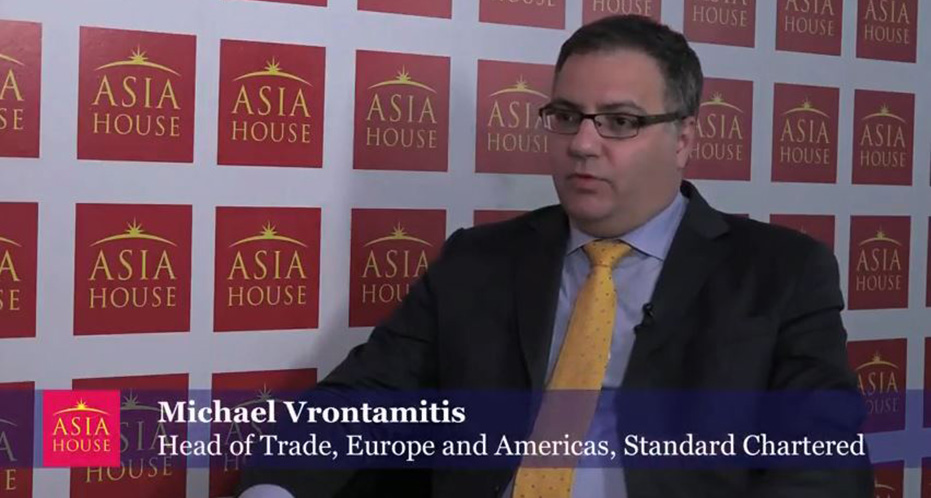Driving commercial and political engagement between Asia, the Middle East and Europe
Driving commercial and political engagement between Asia, the Middle East and Europe
Driving commercial and political engagement between Asia, the Middle East and Europe

Emerging markets present “a critical highway of future growth” for G7 companies, worth US$162 billion in potential trade, according to a leading figure in global trade and investment.
In an interview for Asia House TV, Michael Vrontamitis, Head of Trade, Europe and Americas at Standard Chartered, outlined a multi-billion-dollar missed opportunity for G7 companies, revealed in a new report.
Speaking to Charlie Humphreys, Director of Corporate Affairs at Asia House, Vrontamitis discussed the Standard Chartered Trade Performance Index, published in April.
“The Standard Chartered Trade Performance Index ranks the export performance of the G7 to seven emerging markets we’ve selected, which represent about 20 per cent of global GDP and 50 per cent of imports into emerging markets,” Vrontamitis said.
These emerging seven – or E7 – markets are Bangladesh, China, Pakistan, India, Indonesia, Vietnam and Nigeria.
“Of the 49 trade routes between the G7 and E7, 40 are underperforming,” Vrontamitis said.
“That represents an opportunity of around US$162 billion that the G7 could be exporting to the E7 – about a 30 per cent growth rate opportunity for the G7 in terms of their export growth.”
Humphreys, highlighting the optimism in the report, asked Vrontamitis about the challenges facing G7 companies looking to capitalise on these opportunities.
“The E7, this report show, represents a critical highway of future growth for the G7,” Vrontamitis said. “G7 countries and companies should really think about how to capitalise on this.”
Support in understanding these emerging markets, from business intelligence to relationships, is key.
“It’s down to relationships and understanding the business regulations in these marketplaces as they emerge and evolve. You will know that China’s regulations change on a regular basis. You always need to be up to date on what these regulations are.”
Vrontamitis also highlighted policy issues, identifying a need to understand “trade pacts between nations.”
Michael Vrontamitis joined Asia House corporate members for a private briefing on the issues highlighted in the report this morning.
The Standard Chartered Trade Performance Index is available here.
Watch the full Asia House TV interview with Michael Vrontamitis here.
